
Here's some of what is coming soon to NeurologyLive® this week.

The professor of neurology at Albert Einstein College of Medicine talked about new findings presented at AHS, which suggested that both men and women with migraine can face significantly increased risks of ischemic stroke. [WATCH TIME: 5 minutes]

INmune Bio's XPro shows promise as a treatment for patients with Alzheimer disease, revealing cognitive benefits despite mixed phase 2 trial results.

Test your neurology knowledge with NeurologyLive®'s weekly quiz series, featuring questions on a variety of clinical and historical neurology topics. This week's topic is on the Alzheimer's Association International Conference.

The director of the MedStar Georgetown Headache Center detailed how creative and comparative clinical trials can drive treatment personalization and strengthen clinical confidence. [WATCH: 4 minutes]

A recent study reveals a decline in multiple sclerosis progression rates, highlighting the impact of improved treatments and the need for ongoing innovation in care.
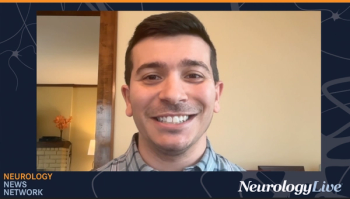
Neurology News Network. for the week ending July 12, 2025. [WATCH TIME: 4 minutes]

Take 5 minutes to catch up on NeurologyLive®'s highlights from the week ending July 11, 2025.

The investigational oral orexin receptor 2-selective agonist oveporexton is designed to restore orexin signaling to address the underlying orexin deficiency caused by narcolepsy type 1.

The associate professor of neurology at Mayo Clinic College of Medicine discussed findings presented at AHS 2025 from a post hoc analysis of the phase 3b DELIVER study testing eptinezumab in patients with migraine. [WATCH TIME: 5 minutes]

Mind Moments®, a podcast from NeurologyLive®, brings you an exclusive interview with Joyce Lee-Iannotti, MD, PhD. [LISTEN TIME: 17 minutes]
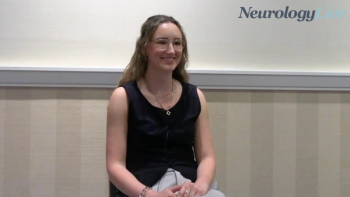
The neuropsychiatry researcher at King's College London highlighted significant gender differences in anxiety, depression, quality of life, and social support among patients with PD undergoing deep brain stimulation. [WATCH TIME: 5 minutes]

A recent study confirmed ambroxol's safety in Parkinson disease dementia, showing stabilization of neuropsychiatric symptoms but no cognitive improvement.

Indirect treatment comparisons showed significantly greater or statistically higher improvements in MG-ADL scores with nipocalimab versus other FcRn blockers over 24 weeks.

West Nile virus poses increasing neurologic risks in the US, with new strains emerging and significant health implications for vulnerable populations.

New findings showed that adjunctive VNS therapy led to sustained reductions in generalized tonic-clonic seizure frequency, supporting its long-term efficacy in patients with drug-resistant epilepsy.
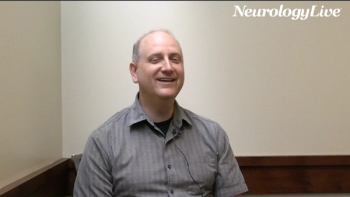
The associate professor of psychiatry and human behavior at UC Irvine explored how analyzing specific sleep oscillations may uncover early neurodegenerative changes and guide future therapeutic targets. [WATCH TIME: 4 minutes]

Exablate Neuro is a noninvasive, MRI-guided focused ultrasound technology designed to treat targeted brain areas without incisions or implanted hardware, offering a lower-risk alternative to traditional surgery.

The updated donanemab dosing schedule is aimed at reducing ARIA risk while maintaining efficacy in early Alzheimer treatment to enhance patient safety.
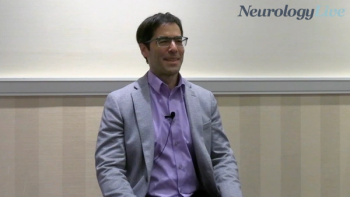
The director of movement disorders at the Banner Sun Health Research Institute discussed distinguishing atypical Parkinsonian disorders early and planning care around their complex symptomatology. [WATCH TIME: 4 minutes]

The chief medical and scientific officer at Harmony Biosciences discussed the pharmacologic rationale and preclinical development of BP1.15205, a novel orexin receptor 2 agonist for hypersomnolence.

A recent trial reveals that a flat head position before thrombectomy significantly reduces the risk of neurological deterioration in stroke patients.

A recent survey reveals rimegepant's effectiveness for short-term migraine prevention, highlighting user demographics, triggers, and treatment strategies.

Eptinezumab showed significant efficacy in reducing chronic migraine days in Asian patients, potentially addressing a critical unmet need for effective treatments.
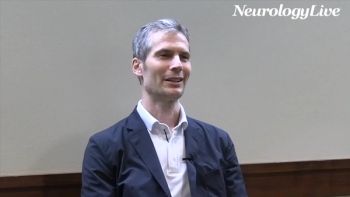
The associate professor of neurology at the Icahn School of Medicine at Mount Sinai detailed how monitoring tools and neuroprotective approaches are evolving for iRBD as research intensifies on its link to Parkinsonian syndromes. [WATCH TIME: 4 minutes]

The professor of neurology at the Miami Miller School of Medicine discussed how the Cognivue Amyloid Risk Measure (CARM) may help predict amyloid presence and informs diagnosis, trial eligibility, and early treatment pathways.

The director of the MedStar Georgetown Headache Center explained why data from trials like TEMPLE help strengthen the argument for CGRP therapies as first-line treatments for migraine. [WATCH TIME: 3 minutes]

Denali Therapeutics advances treatment for Hunter syndrome with FDA's priority review of tividenofusp alfa, targeting brain delivery and improved patient outcomes.

Here's some of what is coming soon to NeurologyLive® this week.

Test your neurology knowledge with NeurologyLive®'s weekly quiz series, featuring questions on a variety of clinical and historical neurology topics. This week's topic is on stroke triage.